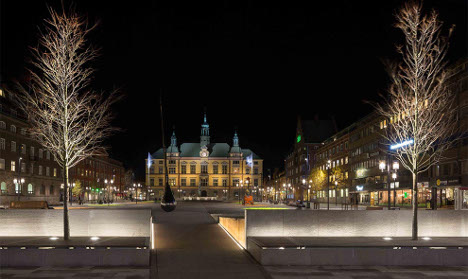
ÅF, where Chiara Carucci works, designed some of the lighting in the new Mall of Scandinavia in Solna. Photo: Marcus Ericsson/TT

Carucci's company worked on this staircase for Hudiksvall municipality in northern Sweden. Photo: Mikael Silkeberg

A lighting project Chiara Carucci is working on in Eksjö. Photo: ÅF

Fristadstorget, a square in Eskilstuna, west of Stockholm, where ÅF also designed the lighting. Photo: Sten Jansin



 Please whitelist us to continue reading.
Please whitelist us to continue reading.